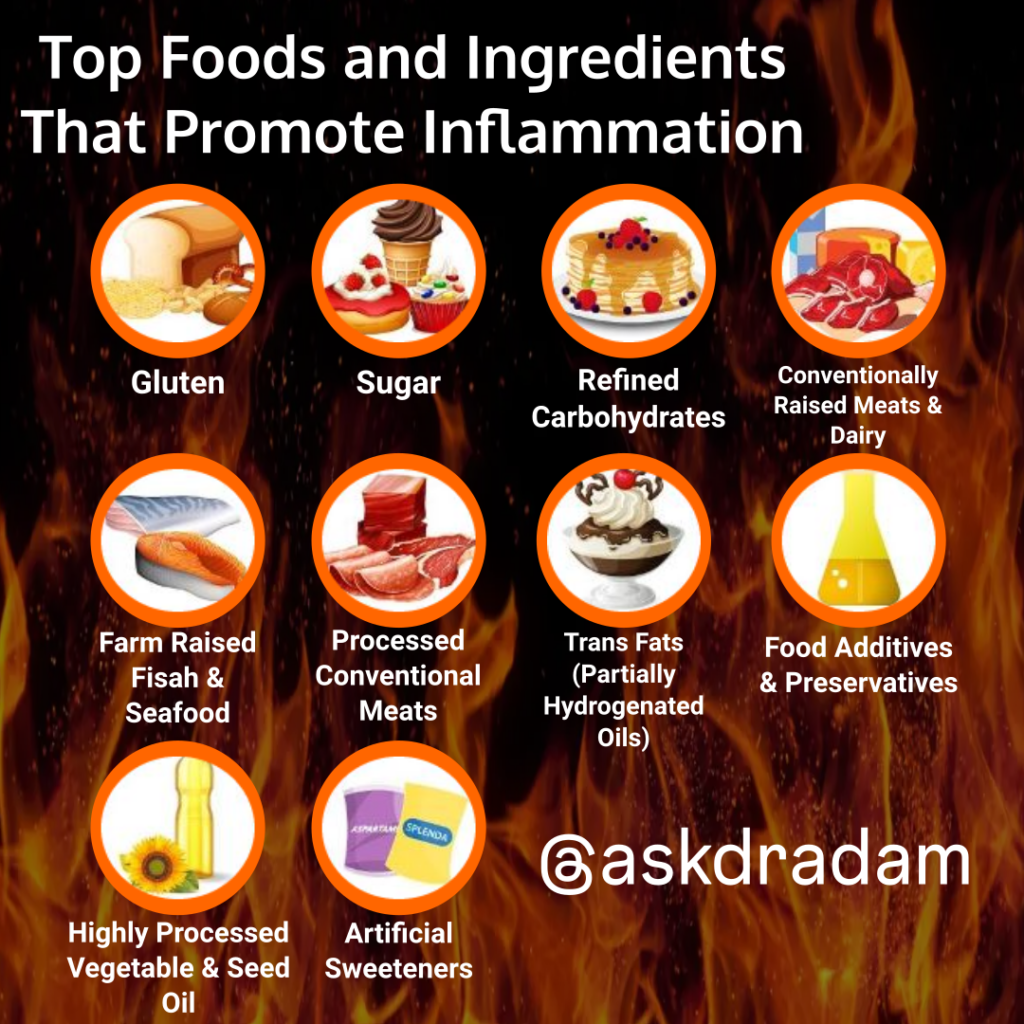Your diet plays a major role in your body’s response to inflammation. Cytokines are proteins produced by your immune system that regulate your immune response. The foods you eat directly correspond to how your immune system produces cytokines. Certain foods can trigger an overproduction of inflammatory producing cytokines.
There are three factors to consider when choosing foods.
1. Blood Sugar Impact
Eating sugary food leads to an imbalance in your blood sugar. This may cause elevated blood sugar levels leading to an overproduction of inflammatory cytokines. This is a recipe for inflammation, pain, and disease.
2. Damaging Fats in Inflammatory Foods
Not all fats in your body elicit the same response. It’s true, we need fat to fuel our body, but not all fats are created equal. Foods like corn, soybean, safflower, and other vegetable oils are categorized as polysaturated fats. Polysaturated fats are unstable and oxidize when exposed to heat, light or air. They become damaged (oxidized) during the cooking process which makes them highly inflammatory in our body and destructive to our health. Avoid chemical altered fats such as “trans” fats called “hydrogenated” or “partially hydrogenated” oils.
These types of oils are bad for the lining of your blood vessels and for your skin! They contribute to acne, spotting, wrinkles, and cardiovascular disease.
3. Chemical Toxins in Inflammatory Foods
In the air, in our food, in our water, and in everyday products we use, environmental toxins are everywhere. Long term exposure to these toxins overwhelm the immune system and increase chronic inflammation. Of course, by now you should realize that a diet with a lot of processed, refined, and non-organic foods is highly toxin to your body.


